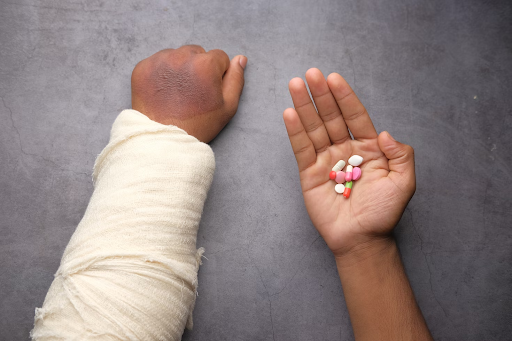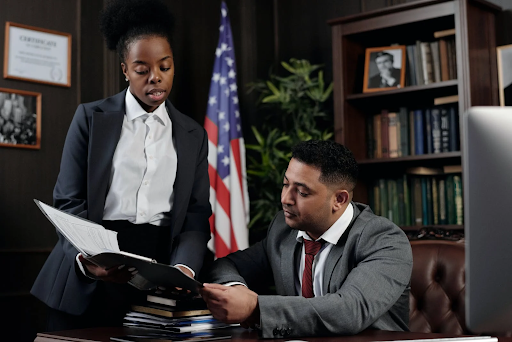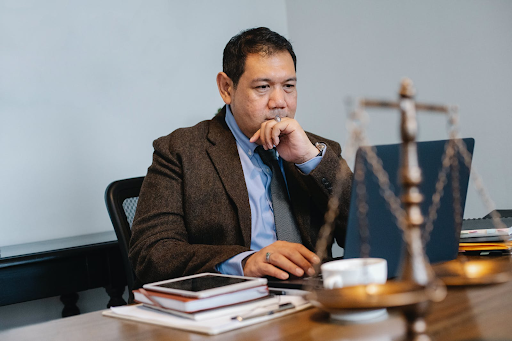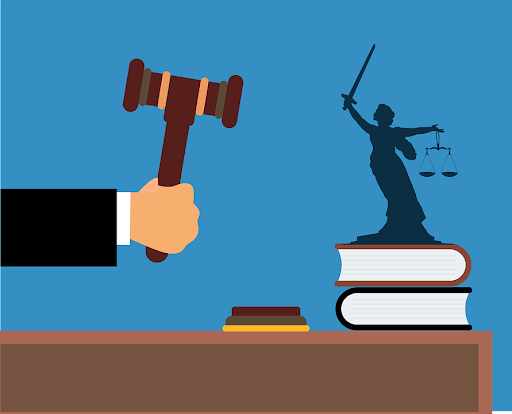So you’ve been injured as the result of an accident. Whether you were in a car accident, you tripped and fell on a run, you pulled a muscle at the gym, or you experienced some form of a freak accident, you now need to know how to move forward. What’s next? Knowing what to do after an injury isn’t always easy. We’re here to offer some advice. Keep reading to learn all about what you should o after experiencing an injury.
Get to Safety
After an injury, you need to find your way to a safe place. This will vary depending on where you were when the injury happened. For example, if it was the result of a car accident, you’ll want to move to the side of the road (and ideally, you’ll move your car as well). If you’re outside on a run, you’ll find somewhere to sit or go to your car. Even if you don’t have a serious injury, you want to put yourself in a safe place so you can assess the situation and take the proper next steps. You don’t want to get further injured by staying somewhere unsafe.
Assess the Situation
Next, figure out what happened. Sometimes you need to zoom out to assess the situation after an injury. You’re full of adrenaline and it can be hard to think clearly! Check yourself for obvious injuries. Are you bleeding anywhere? Do you have any serious bruises? Does anything feel too painful to move? These are signs that something serious has happened and you may need help from a medical professional. You should also assess anyone else who was affected by the accident (if applicable). If you’re in good condition, make sure everyone else is as well. For example, if you were in a car accident, you’d want to check on your passengers and potentially the other driver if you’re unhurt.
Call the Proper Authorities
If necessary, contact the authorities. Of course, this isn’t necessary for every type of injury, but if there’s a legal issue at play or if you think you need an ambulance, now’s the time to call. Make sure you provide accurate information about your location. If you’re not 100% sure where you are, look for landmarks that authorities could identify when they’re trying to find you.
Someone Else’s Fault? Find a Good Lawyer
You may be entitled to damages if the accident was someone else’s fault. If so, you need to contact a lawyer. You can find a good car accident lawyer or personal injury lawyer to advocate for you in court. Don’t try to handle a legal battle on your own, even if you think that it’s an open-and-shut case. A lawyer will help you go over all of your evidence and help you determine whether or not you have a case. If you do have a viable case, they’ll help you get the compensation you deserve. This is especially important if you have to miss work (and miss out on income) or if you have medical bills to pay.
So how do you find a good lawyer?
Make sure that your lawyer isn’t making any promises. A good lawyer is confident, but they don’t guarantee a win. Lawyers should be open and honest about how they charge clients. Whether they work on contingency or have clients pay by the hour, that information should be made clear right away before you officially hire them. A good lawyer should also feel confident in the courtroom. Most cases settle out of court, but a good lawyer can battle a case in court if they have to. Don’t be afraid to talk to multiple lawyers before committing to one.
Seek Medical Care If Necessary
If you haven’t already, it’s time to seek medical care. Even if you think you can heal your injury at home, if you plan on pursuing damages, you need to see a doctor. You’ll want to have official records of your medical visits so you can be compensated for your injury-related expenses. If your injury is serious, you’ll want to visit an emergency room or urgent care center right away. If you think you can wait, try making an appointment with your regular doctor. Unfortunately, wait times can be lengthy right now, so you may end up having to visit an urgent care center anyway. Follow your doctor’s instructions for healing. They may recommend extra care, like physical therapy, or they may prescribe medications for you. If you’re pursuing damages, following the doctor’s instructions to the letter is even more important.
Get Plenty of Rest
When you get injured, your body needs to rest. When you sleep, your body has time to start healing your injuries. You’ll have a quicker healing time if you’re sleeping for a full eight hours every day. If you’re not normally someone who gets to bed early, it’s time to start. Aside from sleep, you also need physical rest. You don’t want to cause further injuries by training the injured area. Even if it’s just for a few days, take it easy and give your body time to heal. This may mean abstaining from heavy exercise (you can still do light exercises to keep your blood moving), not lifting heavy objects, and just taking it easy in general. If possible, either take time away from work or see if you can take care of less strenuous tasks. Give your body time to recover.
Have You Been Injured? Follow Our Advice
If you’ve been injured, don’t forget to keep this guide in mind. You want to have an easy and quick healing process and you want to get the compensation you deserve. These suggestions will help. Don’t try to rush the healing process. If you take it easy and follow your doctor’s instructions, you’ll be up and ready to move in no time. If you’re always trying to learn the best tips and tricks, don’t forget to check out the rest of the site.











